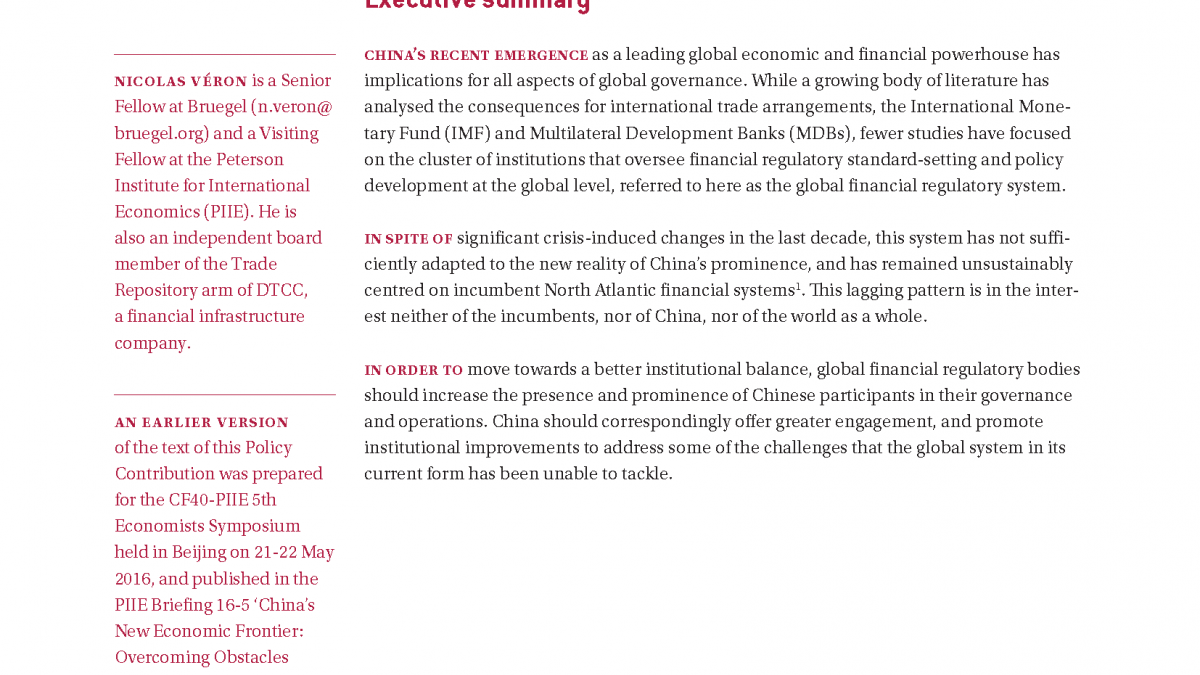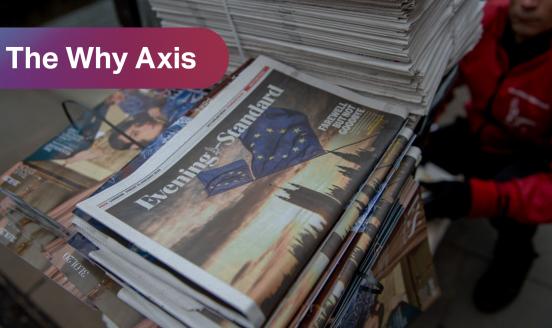Financial regulation: The G20’s missing Chinese dream
The current fairly peripheral role of China in the global financial regulatory system is increasingly problematic. The system needs a guiding vision i

China’s recent emergence as a leading global economic and financial powerhouse has implications for all aspects of global governance. While a growing body of literature has analysed the consequences for international trade arrangements, the International Monetary Fund (IMF) and Multilateral Development Banks (MDBs), fewer studies have focused on the cluster of institutions that oversee financial regulatory standard-setting and policy development at the global level, referred to here as the global financial regulatory system.
In spite of significant crisis-induced changes in the last decade, this system has not sufficiently adapted to the new reality of China’s prominence, and has remained unsustainably centred on incumbent North Atlantic financial systems. This lagging pattern is in the interest neither of the incumbents, nor of China, nor of the world as a whole.
In order to move towards a better institutional balance, global financial regulatory bodies should increase the presence and prominence of Chinese participants in their governance and operations. China should correspondingly offer greater engagement, and promote institutional improvements to address some of the challenges that the global system in its current form has been unable to tackle.



